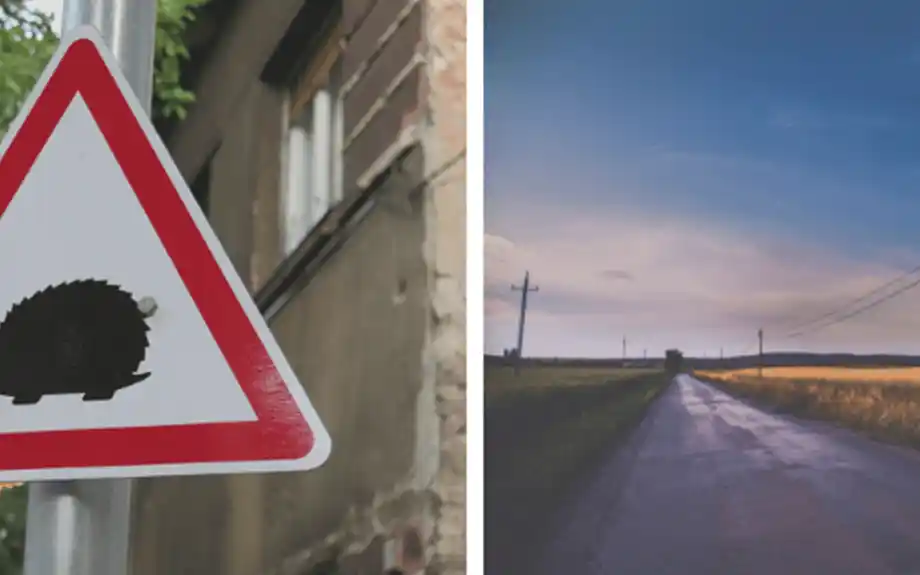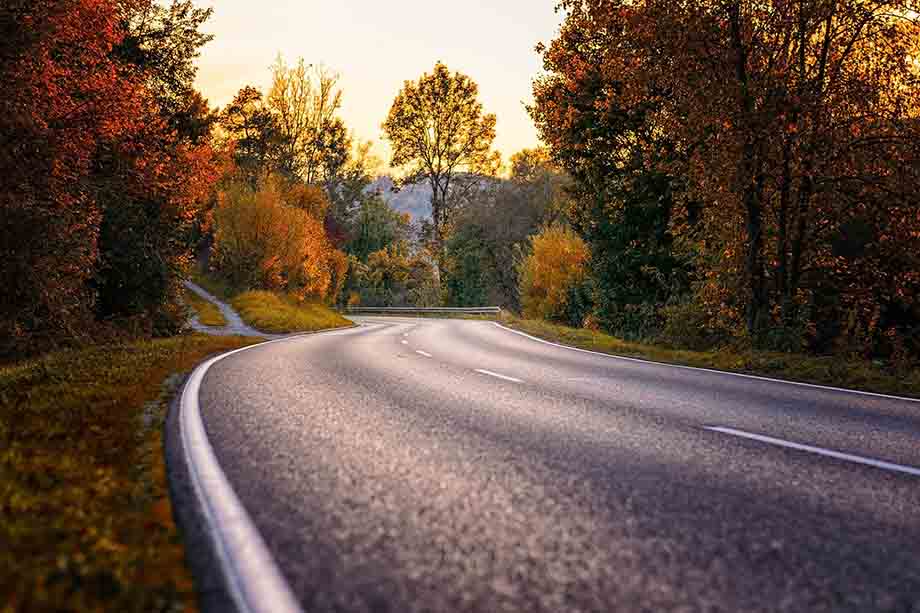Tips on how to handle wildlife on the roads
Mar 25 2022 2:13PM
This week, the Department for Transport introduced a new road sign to the UK’s roads which means a certain member of wildlife that you can encounter on the roads, can breathe a sigh of relief. The sign will feature a picture of a hedgehog to warn motorists of the potential hazard caused by these little cuties. We love all animals here at InsureLearnerDriver, so we have decided to share some tips on how to handle hedgehogs and other wildlife on the roads.
Look for warning signs for wildlife on the roads
Along with this newly introduced hedgehog sign, there are many other signs that warn us about potential wildlife on the roads. The animals can range from ducks to deer, depending on the location. When you see these signs, make sure to be extra observant. For the animal’s safety and your own.  Be extra observant when driving on rural and country roads, and always adhere to the speed limit!
Be extra observant when driving on rural and country roads, and always adhere to the speed limit!
Learn to recognise areas where wildlife thrives
It doesn’t take a rocket scientist to recognise roads where wildlife is more common. Sometimes, there won’t always be a sign to warn you of any animals that could appear on the road, so take extra care on country lanes and when driving through wooded areas.
Increase your observations and visibility
Taking the time to be vigilant and look ahead can give you enough reaction time to act appropriately if an animal unexpectedly appears on the road. Also, use your high-beam headlights if there’s no oncoming traffic. This will allow you to spot any wildlife on the roads in good time.
Do not swerve your vehicle
If an animal does suddenly appear on the road in front of you, firmly apply the brakes and remain in your lane. If you swerve your car, you could end up losing control of the vehicle completely and causing more causalities on the road.
What to do if you hit an animal
Unfortunately, this happens. Knowing how to act in a collision can help. If you’re involved in any accident on the roads, you have to stop and remain at the scene to exchange details with anyone else involved or contact the appropriate services. The law does state that the police need to be contacted if certain animals are hit, or if you feel the police need to be notified regardless. You can also contact the RSPCA on 0300 1234 999 if you need advice or assistance. If you feel the need to approach the animal, please put your own safety first and be wary of other vehicles and hazards on the roads as you do so. Also, bear in mind that any injured animal could be in shock and cause harm to you out of fear. As previously mentioned, you can call the police or RSPCA if you’re unsure of what to do.
We are lucky to have so much beautiful wildlife in the UK, so knowing how to deal with them on the roads is essential if you want to be a good driver. For more tips on staying safe on the roads, or for regular driving test tips, follow us on social media: InsureLearnerDriver Facebook | InsureLearnerDriver Twitter | InsureLearnerDriver Instagram

